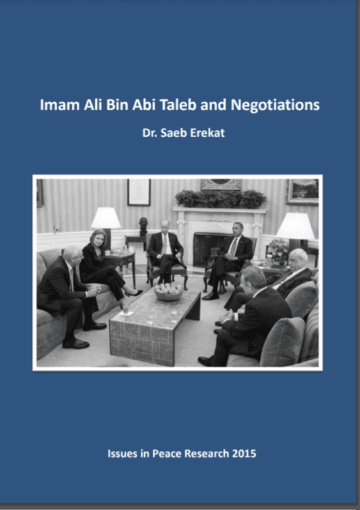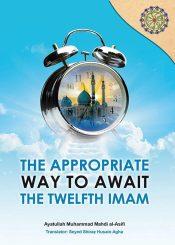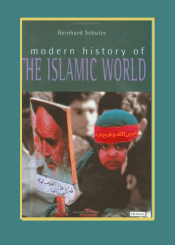Imam Ali Bin Abi Taleb and Negotiations

Imam Ali Bin Abi Taleb and Negotiations
Author :
Publisher :
Publication year :
2015
Publish number :
first
Publish location :
Bradford - England
Number of volumes :
1
(0 Votes)

(0 Votes)
Imam Ali Bin Abi Taleb and Negotiations
How can timeless moral principles shape real-world negotiations? This thought-provoking study explores how Imam Ali (ʿa) balanced justice, compassion, and practicality in decision-making. It asks what modern diplomacy can learn from a leader whose legacy united faith with governance.
About the Book
This work by Dr. Saeb Erekat was first published in 2015 through the Peace Studies program at the University of Bradford, UK. It analyzes Imam Ali’s (ʿa) approach to negotiation, showing how spiritual values guided his political and social strategies. Drawing on Qurʾanic guidance, prophetic traditions (hadith), and historical accounts, the book demonstrates that negotiation in Imam Ali’s (ʿa) practice was never divorced from ethics. Instead, his judgments reveal how principles of fairness, dignity, and truthfulness can coexist with practical concerns of leadership and governance.
The study highlights how Imam Ali (ʿa) integrated moral authority into pragmatic decisions, portraying negotiation as a delicate balance of justice and effectiveness.
What You Will Discover
- Historical cases of Imam Ali’s (ʿa) negotiation with companions and opponents.
- How Qurʾanic principles informed his conduct in political and social disputes.
- The ethical dimension of diplomacy: truthfulness, fairness, and responsibility.
- Lessons for contemporary conflict resolution drawn from classical Islamic sources.
- A framework for reconciling justice and realism in negotiations.
About the Author
Dr. Saeb Erekat (1955–2020), a Palestinian diplomat and academic, was best known as the chief Palestinian negotiator in the peace process with Israel and as a professor of political science. His writings and lectures often explored the intersection of justice, politics, and negotiation, making him uniquely positioned to reflect on Imam Ali’s (ʿa) model of principled leadership.
Who Is This Book For?
This book is for students of peace studies, political science, and Islamic thought. It also speaks to diplomats, negotiators, and anyone seeking to understand how moral and spiritual values can guide practical decision-making. For readers interested in Imam Ali (ʿa), it provides a fresh perspective on his legacy as both a spiritual leader and a negotiator.






